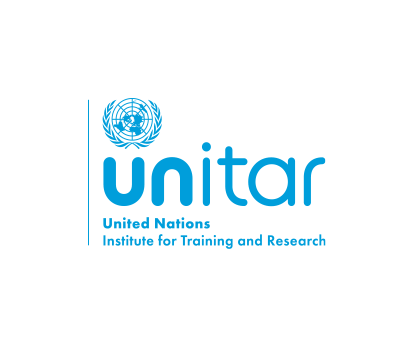
CIFAL York - AMR Policymaking Course
AMR (Antimicrobial Resistance) kills and debilitates millions of people annually, especially in low- and middle-income countries (LMICs). It also turns back years of progress on the UN Sustainable Development Goals, particularly in global health, food safety and security, economic growth, poverty alleviation, and the environment. Economically, the World Bank estimates AMR will cost economies $100 trillion USD from 2017 – 2050. More must be done urgently and collectively to mitigate AMR, while we still can. Ensuring that life-saving antimicrobials remain available as effective treatment options will require a massive, coordinated global effort.
The AMR Policy Accelerator at York University’s Global Strategy Lab is a policy think-tank that bridges AMR science and policy and provides policymakers at the national and international levels, with rigorous policy research needed to inform AMR policymaking and National AMR Action Plans.
This course is designed to help technical professionals (Eg. Medicine, Pharmacy, Veterinary, Epidemiology) make the leap from research and practice to policy, and to equip them with the tools to make effective policy decisions in the AMR policy space, from a One Health perspective. Taught by leading AMR and health policy experts, this course will provide participants with:
-
A deeper understanding of policy levers and how to use them as AMR leaders in government to make effective decisions.
-
An appreciation of the role of policymaking and governance structures at the national and international levels as they pertain to progress on AMR goals.
-
A stronger foundation in monitoring, evaluating, and learning principles to strengthen AMR policy programs and assess their effectiveness.
-
A robust toolkit and insight into how different types of evidence are developed and used in the policy process, and their relationship(s) to one another
This course is designed to help technical professionals (Eg. Medicine, Pharmacy, Veterinary, Epidemiology) quickly make the leap from research and health care practice to policy, and to equip them with the tools to make effective policy decisions in the AMR policy space, from a One Health perspective.
This course will provide participants with:
-
A deeper understanding of policy levers and how to use them as AMR leaders in government to make effective decisions.
-
An appreciation of the role of policymaking and governance structures at the national and international levels as they pertain to progress on AMR goals.
-
A stronger foundation in monitoring, evaluating, and learning principles to strengthen AMR policy programs and assess their effectiveness.
This course is designed to help technical professionals (Eg. Medicine, Pharmacy, Veterinary, Epidemiology) quickly make the leap from research and health care practice to policy, and to equip them with the tools to make effective policy decisions in the AMR policy space, from a One Health perspective.
This course will provide participants with:
-
A deeper understanding of policy levers and how to use them as AMR leaders in government to make effective decisions.
-
An appreciation of the role of policymaking and governance structures at the national and international levels as they pertain to progress on AMR goals.
-
A stronger foundation in monitoring, evaluating, and learning principles to strengthen AMR policy programs and assess their effectiveness.
One critical area of work for the AMR Policy Accelerator is to invest in policymaker learning and provide them with professional development and expertise to effectively address issues in AMR policy.
Based on feedback from expert advisory board and key stakeholder, the AMR Policy Accelerator is targeting an identified gap in the AMR policy space: executive-style education for AMR policymakers who (i) come from technical backgrounds (e.g., veterinary medicine, pharmacy, etc.), (ii) do not necessarily have a strong foundation in public policy development and evaluation, and (iii) are moving into policy leadership positions with national governments and international organizations. To best support learning for this audience, we are developing a one-week accelerated course to be run in person at York University through CIFAL-York and the UN Institute for Training and Research. Our goal is to immerse AMR policymakers in a highly engaging, evidence-based learning environment that features a range of interactive activities like discussions and presentations through case-based learning.
Based on feedback from expert advisory board and key stakeholder, the AMR Policy Accelerator is targeting an identified gap in the AMR policy space: executive-style education for AMR policymakers who (i) come from technical backgrounds (e.g., veterinary medicine, pharmacy, etc.), (ii) do not necessarily have a strong foundation in public policy development and evaluation, and (iii) are moving into policy leadership positions with national governments and international organizations
This course is ideal for technical professionals who have taken on, or are being considered for, leadership policy positions at the “Director-level” or similar.
These individuals could be within any of the One Health sectors – human health, animal health, agriculture or environment– and working on AMR policy. For instance, an experienced veterinarian and researcher who will now take on a director-level role with a national Ministry of Agriculture or a high-level position with an international organization within the United Nations network. To champion diversity and ensure attendance is not cost-prohibitive, we will provide a number of subsidized positions for participants from low- and middle-income countries.

